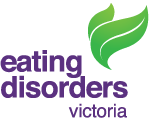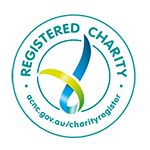Special Events
- Mark Discussion as New
- Mark Discussion as Read
- Float this Discussion for Current User
- Favourite
- Subscribe
- Printer Friendly Page
- Mark as New
- Favourite
- Subscribe
- Get link
- Flag for Moderator
19-10-2021 08:16 PM
19-10-2021 08:16 PM
Re: Topic Tuesday // Tools for Advocacy // Tues 19th October, 7:00-8:30PM AEST
I worked with the family and the student, then helped them write a letter to the school.
The letter detailed:
- The Incident
- Impact of the incident
- Relevant policies and law
- recommendations
- Points for action including professional learning for staff
- times for follow-up meetings
The school immediately took up the recommendations, and there was systematic change within the school to ensure reasonable adjustments are made for students with disability.
- Mark as New
- Favourite
- Subscribe
- Get link
- Flag for Moderator
19-10-2021 08:16 PM
19-10-2021 08:16 PM
Re: Topic Tuesday // Tools for Advocacy // Tues 19th October, 7:00-8:30PM AEST
@chibam I can completely relate to that experience, some of the language can go over my head sometimes or not feel relatatable.
A lot of the key National plans, policies, standards, strategies and the like can be found on the Department of Health and National Mental Health Commission websites. I find the most helpful parts are the Exectutive Summary, any companion documents that are made for service users, and looking at the lists of recommendations to get a sense of what is proposed in the document.
The National Mental Health Commission has a page for all their mental health reform intiatives, which I find is a helpful space to explore what's happening in mental health in Australia and see what opportunities there might be to link in with advocacy efforts. Often peak bodies (eg: Being and VMIAC) contribute to reform consultations 🙂
- Mark as New
- Favourite
- Subscribe
- Get link
- Flag for Moderator
19-10-2021 08:16 PM
19-10-2021 08:16 PM
Re: Topic Tuesday // Tools for Advocacy // Tues 19th October, 7:00-8:30PM AEST
Very true @chibam
I do find though there are strategies we can use to tell our story in briefer ways.
I once saw an advocate show three images.And they explained in about 2 sentences each how those pictures represented their journey and brought them to their current point of view. They they sent spent most of the meeting talking about the change they wanted to see but it was all informed by those 3 pictures and 6 sentences.
We don't have to give all of ourself away to prove a point. That was a difficult lesson for me to learn in my advocacy journey but it has definitley been an important one.
- Mark as New
- Favourite
- Subscribe
- Get link
- Flag for Moderator
19-10-2021 08:16 PM
19-10-2021 08:16 PM
Re: Topic Tuesday // Tools for Advocacy // Tues 19th October, 7:00-8:30PM AEST
@cloudcore wrote:Question 6. If advocacy isn’t successful, what can you do? @Daisydreamer
...and as a sub-question, how can you tell if advocacy is successful?
- Mark as New
- Favourite
- Subscribe
- Get link
- Flag for Moderator
19-10-2021 08:17 PM
19-10-2021 08:17 PM
Re: Topic Tuesday // Tools for Advocacy // Tues 19th October, 7:00-8:30PM AEST
Ohh that does help @periwinklepixie
Soo I have been kinda pushing instead of guiding
My husband loves to do photography, going to quiet spots , river or creeks xx
- Mark as New
- Favourite
- Subscribe
- Get link
- Flag for Moderator
19-10-2021 08:18 PM
19-10-2021 08:18 PM
Re: Topic Tuesday // Tools for Advocacy // Tues 19th October, 7:00-8:30PM AEST
I love that @periwinklepixie thank you!!!!
- Mark as New
- Favourite
- Subscribe
- Get link
- Flag for Moderator
19-10-2021 08:20 PM
19-10-2021 08:20 PM
Re: Topic Tuesday // Tools for Advocacy // Tues 19th October, 7:00-8:30PM AEST
@Shaz51 ,
Do you think it is about narrowing down your questioning so it is more specific for each area of functionality? I'm not sure of the exact circumstances surrounding MrShaz though.
what I'm saying, maybe breaking down future goals into:
- social goals
- cognitive goals
- physical goals
- skill development goals
Ask whatever is relevant. Even for me, if you say "what are your future goals?" I'd be lost too.
- Mark as New
- Favourite
- Subscribe
- Get link
- Flag for Moderator
19-10-2021 08:21 PM
19-10-2021 08:21 PM
Re: Topic Tuesday // Tools for Advocacy // Tues 19th October, 7:00-8:30PM AEST
Question 6. If advocacy isn’t successful, what can you do?
There are times when our advocacy doesn’t lead to the outcomes we are looking for, or services aren't hearing what we are saying. It might also be the case that we don't know if our advocacy is successful, or might take time to influence long term change.
1. Leaning on your peers and talking with other advocates to cope with the impact can be really helpful. It helps me to know not to give up hope, and know that there are other opportunities
2. Making sure the avenue for advocacy is the right one for the outcome you are looking for: A big part of advocacy is finding the right avenue for the impact you are hoping to achieve
3. Effective communication: Sometimes our points may not have come across, or the communication didn’t go the way we have planned. Make a plan for communication in advocacy, and brush up on effective communication skills to help you next time
- Mark as New
- Favourite
- Subscribe
- Get link
- Flag for Moderator
19-10-2021 08:23 PM
19-10-2021 08:23 PM
Re: Topic Tuesday // Tools for Advocacy // Tues 19th October, 7:00-8:30PM AEST
@periwinklepixie wrote:We don't have to give all of ourself away to prove a point. That was a difficult lesson for me to learn in my advocacy journey but it has definitley been an important one.
I have the handicap of coming from a very stubborn and argumentative household, @periwinklepixie . Not helped by the fact that I ended up with a very argumentative and stubborn therapist, either. I once spent a whole hour session trying to argue with her that it was understandable why my mother was sad that she had to relinquish ownership of the house she grew up in - and got nowhere.
So I guess I have this pathalogical sense that, even if I present a 10,000-word thoroughly argued case, people will still not listen to what I have to say.
It feels like I just can't do eough to make my point.
I suspect that, ultimately, it makes me quite tiresome. ![]()
- Mark as New
- Favourite
- Subscribe
- Get link
- Flag for Moderator
19-10-2021 08:24 PM
19-10-2021 08:24 PM
Re: Topic Tuesday // Tools for Advocacy // Tues 19th October, 7:00-8:30PM AEST
You say tiresome, I say passionate @chibam ![]()
















